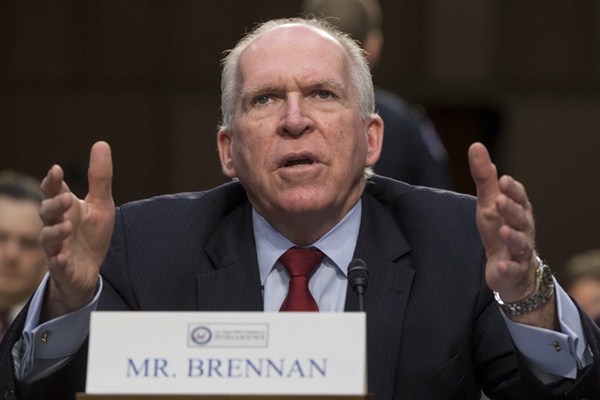Last week, the CIA held its third annual conference in conjunction with George Washington University’s Center for Cyber and Homeland Security. The agency’s director, John Brennan, who moderated parts of the proceedings, expressed his deep personal commitment to improving the conversation between the intelligence community and the American public.
Earning the public’s trust is an obligation in a democracy, and as a practical matter, a lack of openness only leads to very distorted perceptions of the intelligence function. Brennan spoke of the need for secrecy, not for its own sake, but strictly as required for safety and security.
The conference, and Brennan’s remarks, highlighted the efforts that the U.S. intelligence community has been making to restore trust with the American people. That trust was damaged by revelations about post-9/11 excesses in electronic surveillance, the intelligence community’s reluctance to share data about drone strikes, and other secrecy practices, all of which led to a public demand for more transparency. Their efforts deserve recognition, even if striking the balance between legitimate secrecy and openness is a very subjective call, one that the people who own the secrets ultimately get to make.

